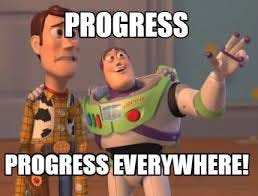Lots of people form their conception of what it’s like to be a philosopher based on the courses they took in college or as a graduate student. Although this is almost unavoidable, in my experience this results in serious misconceptions. Doing high-level work in philosophy bares little resemblance to what you encounter in a course, either as an undergrad or graduate student. It’s even worse if you’ve mainly taken courses with a heavy historical element to them.
So, what’s it REALLY like to do philosophy in a serious, sustained way, for many years?
I’ve been doing philosophy professionally for over 25 years, at universities in the US, UK, Europe, Asia, and the Middle East. I have done extensive work that led to multiple publications in the philosophy of mind, epistemology, the philosophy of language, metaphysics, the philosophy of religion, and metaphilosophy.
So, yeah: I have a pretty good idea what it’s like.
I’m neither a cheerleader nor a heavy critic of professional philosophy. It’s like many things in life: lots of pros, lots of cons, and its value and usefulness depend a great deal on how it’s developed and used. If you read any extremely positive or negative assessments, then you aren’t getting accurate testimony.
I’ve noticed a pattern to how one’s level of understanding a given topic changes with philosophical investigation. What’s cool about it is that it shows that philosophical investigation has two qualities that seem utterly opposed: there’s tons of chaos, but there is tons of progress too.
Here’s the pattern:
I start working on a small group of closely related questions on some topic, Q1-Q5. After a lot of work, reading, writing, and discussing, I arrive at answers to Q1-Q3 that I’m happy with. So I start on Q4 and Q5. But then I uncover seriously good evidence against my answers to Q2 and Q3. Shit. I restart, focusing on Q2-Q5. At least I have Q1 figured out!
Nope. In further investigations, which might take weeks, months, or even years, I come to realize, first, that both Q2 and Q4 are ambiguous, with at least two relevant meanings each, and I had been confusing them. Fuck. Second, I realize that Q1 isn’t even coherent. Third, I realize that what I really need to do, in order to make any progress on this topic I find so interesting, is focus on questions Q6-Q8, and set Q1-Q5 aside entirely.
Eventually I settle on answers I find attractive to Q6 and Q7 even though I’m fully aware that loads of philosophers just as competent and informed as I am—well, in all honesty they are more informed than I am, have higher IQs, and are no more biased than I am—have rejected my answers. I just swallow that fact and plow ahead because, well, what the hell else am I gonna do?
Eventually I realize that there a couple “forks in the road”: places where you are faced with “Is claim C true?” and different answers will send you in very different directions, embracing ideas completely rejected by others just as competent and informed as you are. The uncomfortable truth is that there are good but inconclusive reasons for taking each fork—reasons that look, after reflection, quite good. It almost seems like a flip of the coin here.
And then the whole process repeats. And then it repeats again. It would be bad enough if it happened just once, but it seems to occur over and over.
After living through all this, my initial conviction that Q1-Q5 were pivotal is completely gone, as I’ve discovered that all of them are either incoherent or admit of several importantly different interpretations and need to be abandoned in favor of better questions. I almost want to blame my teachers for misleading me! But then I realize that I wouldn’t have even believed them if they had told me that Q1-Q5 are rubbish.
None of that unsettling experience is rare or exaggerated. In fact, it’s the opposite: it’s utterly typical, even the norm, in the areas I’ve researched—although it takes a considerable amount of time, and willingness to be proven wrong, to experience it. I suppose there might be philosophical subfields that never or almost never exhibit that pattern, but it definitely shows up constantly in the subfields I’ve worked in, listed above.
What’s fascinating here is that there is a great deal of chaos, in the sense that previous assumptions and conclusions are typically and radically upended over and over again, combined with huge amounts of progress, right inside the chaos.
PROGRESS: Set aside the issue of progress for the field as a whole and focus on something you have first-person experience with: the progress you have made in understanding the philosophical issues you have studied the most.
For instance, suppose you started out thinking that discoveries in neuroscience ruled out free will. Then you did some further reading and came to think that that wasn’t true. But further reading convinced you that physics, not neuroscience, shows we don’t have free will, even if neuroscience doesn’t. Then more investigation suggested the opposite. Then even deeper investigation suggested that no one knows yet about the physics-free will issue, due to uncertainty in cutting edge physics.
But then the real shit happens: you discover that your concept of free will was totally ambiguous and you were running different notions together this whole freakin’ time. And shit: the same was true for multiple notions of determinism. Now you look back at the stuff you wrote and find it embarrassing. You look back at the stuff you read and realize that some of it was naïve and some of it you had only partially understood, despite thinking you understood it perfectly fine. Your understanding of the whole free will/determinism issue is wildly more advanced and deeper than before, even though you haven’t reached much in the way of conclusions at all, at least that you can articulate well.
CHAOS: I suppose the chaos is evident by my descriptions of the process of philosophical investigation. In particular, doing research in philosophy is incredibly different from doing research in the sciences. In the latter, there is a great deal of accumulation of established results. It’s not always accumulative of course, but that hardly matters. In order to vividly see the accumulative nature of so much, but not all, science, just look at some textbooks from different decades. Look at advanced chemistry texts from 1924, 1974, and 2024. It will be obvious that the field keeps learning tons of new stuff, at an extraordinary rate. Moreover, although some previously accepted ideas were later rejected, a great deal remains intact and builds on previous results.
If you talk to someone who is really great in a certain area of philosophy, and they are patient, honest, and generous with their time, attention, and effort, you can experience a sped-up version of both the chaos and progress. But the chaos is quite disturbing. The things you were confident about are being challenged over and over, and it can be a blow to one’s ego. I’m fortunate enough to have experienced it multiple times as a student and then later as a professor, working with people who were better at philosophy than I was.
When you realize the pattern of chaos, and know that it will probably continue, it can be depressing. After all, you now know that even though you’ve worked your ass off to achieve a certain understanding of a topic, there’s a good chance that there will be significant transformations in that understanding if you just continue your investigation. Right now, today, it seems so clear that X, Y, and Z are all true and important. But will you still have that opinion after you’ve put a few more years thought into it? There’s a good chance that you won’t, if you have the guts to be open-minded.
However, never forget the progress inside the chaos. Sure, a few years from now you’ll look back at your perspective today and see the serious problems with it—ones you are clueless about now. But you will have attained a much better understanding. Things improve, almost all the time. Not always! But yes, most of the time your understanding of a philosophical topic undergoes huge improvement with a few more years investigation.
One last apt story:
Tim Williamson is unquestionably one of the best philosophers around today. His fame took off when he published his book Vagueness, in 1994. I love the very first sentence of the book:
“This book originated in my attempt to refute its main thesis…” (p. xi).







Great piece Bryan, I can relate to much of what you describe here, although my professional philosophical activities never reached the level of complexity of your own. I worked on my research beyond completing my PhD for a bit before moving on to other things.
I liked how you pointed out the personal nature of progress when working on a project and how this can often feel chaotic, leading to the loss of direction. I have noticed that when I have felt this way is also when I enjoyed research the most. I would think to myself "if I am feeling this way, then philosophy must really matter because it is bringing genuine problems and puzzles into the light"